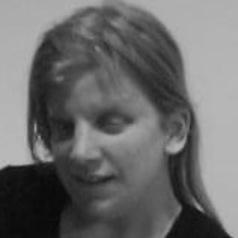In March 2024 on International Women’s Day, I launched the Disabled Women in Academia Group.
It is a sub-group of the National Association of Disabled Staff Networks (NADSN) – for those who identify as a woman (or non-binary) at any career stage and from any area working in universities.
The group – set up with the support of Jacquie Nicholson and Hamied Haroon, Vice Chair and Chair of NADSN, aims to provide an inclusive space where all women feel they can join if they wish.
Sessions take place online and each session focuses on a specific topic, or we have a guest speaker.
I set up the group because I felt there was a gap in the market. While we already had schemes like Aurora and the Women in Academia Support Network, there wasn’t a specific space for disabled women to meet. Data from Advance HE (2024) clearly indicates both women and disabled individuals are underrepresented in senior roles at universities.
Given this, it is therefore apparent that disabled women are going to be even more underrepresented in these roles.
Of course, not everyone wishes to hold a senior role in a university, but disabled women deserve the right to thrive as much in the university setting as other groups.
Leadership and aspiration
A second reason I wished to set up the group was to enable disabled women to develop a sense that they could be leaders if that’s what they aspired to be.
There are already leadership schemes like Aurora for women, 100 Black Women Professors NOW by the Women in Higher Education Network, and Calibre, a leadership programme to support disabled staff in higher education and the NHS.
While this is not a formalised leadership programme or scheme, we do have discussions around leadership and career progression within our sessions. We need to be having these discussions as it is often the case that disabled women are perceived by others as less able due to the ableist nature of academia.
Jacinda Arden in her role as New Zealand’s Prime Minister redefined what leadership is for women and demonstrated that leaders could have those traits of compassion, show emotion, and remain effective leaders. Such groups like the Disabled Women in Academia Group create that safe space when we are engaging in that process.
The group has run for a year now and it is one of the things I most enjoy doing. I get to meet lots of different women, and we have built up a real sense of collegiality.
I have learnt a lot about the challenges we face as disabled women and strategies to address those challenges. I have learnt about the importance of leadership and that the higher education sector needs people to be working together to bring about real change to support students and staff (see NADSN’s RIDE Higher which is developing a framework to support disabled staff in higher education institutions).
The costs of coordination
However, this advocacy work, on behalf of ourselves and others carries with it an emotional cost. A colleague mentioned to me a book by Katherine May ‘Wintering: The Power of Rest and Retreat in Uncertain Times’.
Having a disability or chronic illness can bring with it uncertainty, especially if symptoms are unpredictable or we are awaiting medical treatment.
During these times we may need to engage in a period of “wintering” – here I am not referring to the actual season of winter – Katherine May uses it as a metaphor and acknowledges we can “winter” anytime, where we focus on ourselves and develop strategies that work for us, replenish our resources and subsequently come out in the spring rejuvenated and ready to face the world again.
For me, the Disabled Women in Academia Group provides a safe space to do this and fuels my hope of a more equitable environment for disabled women going forward.
Acknowledgments: Thanks to Jacquie Nicholson and Dr Hamied Haroon for comments on an earlier version and supporting the work of the Disabled Women in Academia Group.












